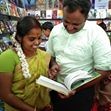Legal aid
 M.RAJA.
(Querist) 22 September 2011
This query is : Resolved
M.RAJA.
(Querist) 22 September 2011
This query is : Resolved
sir,
please tell me about legal aid, what is the procedure for legal aid.whether the district court has legalaid, plz tell me legalaid in detail via dineshrajaips@gmail.com
 Raj Kumar Makkad
(Expert) 22 September 2011
Raj Kumar Makkad
(Expert) 22 September 2011
Legal Aid implies giving free legal services to the poor and needy who cannot afford the services of a lawyer for the conduct of a case or a legal proceeding in any court, tribunal or before an authority. The earliest Legal Aid movement appears to be of the year 1851 when some enactment was introduced in France for providing legal assistance to the indigent. In Britain, the history of the organised efforts on the part of the State to provide legal services to the poor and needy dates back to 1944, when Lord Chancellor, Viscount Simon appointed Rushcliffe Committee to enquire about the facilities existing in England and Wales for giving legal advice to the poor and to make recommendations as appear to be desirable for ensuring that persons in need of legal advice are provided the same by the State.
One need not be a litigant to seek aid by means of legal aid. Legal aid is available to anybody on the road. Justice Blackmun in Jackson v. Bishop says that; "The concept of seeking justice cannot be equated with the value of dollars. Money plays no role in seeking justice."
Article 39A of the Constitution of India provides that State shall secure that the operation of the legal system promotes justice on a basis of equal opportunity, and shall in particular, provide free legal aid, by suitable legislation or schemes or in any other way, to ensure that opportunities for securing justice are not denied to any citizen by reason of economic or other disability. Articles 14 and 22(1) also make it obligatory for the State to ensure equality before law and a legal system which promotes justice on a basis of equal opportunity to all. Legal aid strives to ensure that constitutional pledge is fulfilled in its letter and spirit and equal justice is made available to the poor, downtrodden and weaker sections of the society. Sec. 304, Criminal Procedure Code: The Constitutional duty to provide legal aid arises from the time the accused is produced before the Magistrate for the first time and continues whenever he is produced for remand.
Since 1952, the Govt. of India also started addressing to the question of legal aid for the poor in various conferences of Law Ministers and Law Commissions. In 1960, some guidelines were drawn by the Govt. for legal aid schemes. In different states legal aid schemes were floated through Legal Aid Boards, Societies and Law Departments. In 1980, a Committee at the national level was constituted to oversee and supervise legal aid programmes throughout the country under the Chairmanship of Hon. Mr. Justice P.N. Bhagwati then a Judge of the Supreme Court of India. This Committee came to be known as CILAS (Committee for Implementing Legal Aid Schemes) and started monitoring legal aid activities throughout the country. The introduction of Lok Adalats added a new chapter to the justice dispensation system of this country and succeeded in providing a supplementary forum to the litigants for conciliatory settlement of their disputes. In 1987 Legal Services Authorities Act was enacted to give a statutory base to legal aid programmes throughout the country on a uniform pattern. This Act was finally enforced on 9th of November 1995 after certain amendments were introduced therein by the Amendment Act of 1994.
Contributions Made By Justice V.R.Krishna Iyer To The Development Of Legal Aid
- ‘Processionals Justice To Poor’- A Report
The contribution of justice Krishna Iyer towards the development and incorporation of the concept of legal aid in the Indian legal system has been tremendous. His report titled Processionals justice to poor’ has gone a step further in enabling the recognition of the poor for the purpose of giving legal aid.
In a report on Free Legal Aid in 1971. Justice Bhagwati observed " even while retaining the adversary system, some changes may be effected whereby the judge is given greater participatory role in the trail so as to place poor, as far as possible, on a footing of equality with the rich in the administration of justice."
A similar report of the Committee on Legal Aid titled "processionals justice to poor" presided over by Krishna Iyer in 1973, dealt with the nexus between law and poverty, and spoke of PIL in this context. It emphasized the need for active and widespread legal aid system that enabled law to reach the people, rather than requiring people to reach the law.
The two judges joined forces as a two member committee on juridicare, released its final report in August 1977. The report while emphasizing the need for a new philosophy of legal service programme cautioned that it ‘must be framed in the light of socio-economic conditions prevailing in the Country’. It further noted that ‘the traditional legal service programme which is essentially Court or litigation oriented, cannot meet the specific needs and the peculiar problems of the poor in our country’. The report also included draft legislation for legal services and referred to Social Action Litigation.
Justice Krishna Iyer was appointed as the Chairman of Committee for Legal Aid. The Committee was formulated as on the 22nd day of October 1972. The Committee after conducting sample surveys of large part of the country submitted a 275 page report to the Government on the 27th day of May, 1973. This report came to mark the cornerstone of Legal Aid development in India. The report clearly laid down that it is a democratic obligation of the State towards its subject to ensure that the legal system becomes an effective tool in helping secure the ends of social justice. He coined the word "Juridicare" to cover a scheme of legal aid which brought justice to the doorstep of the lowly and which was comprehensive in its coverage.
The report clearly suggests the colonial hangover of the Indian legal system which has prevented it from realising its true potential and extent. It also recognises the fact that much of our law was created by the British to suit their convenience and as a result of this it is mostly insensitive to the socio-economic problems of the masses it set out to govern and regulate.
The report also made an effort to classify those categories of persons who are most in need of Legal Aid, they are as follows:-
# The poor in general;
# Those persons belonging to the Scheduled Castes or Scheduled Tribes, i.e. that category of persons who have been both economically as well as socially exploited by the cultural elitists since time immemorial.
# Those persons who either by reason of being inhabitants of backward areas or who are so geographically placed that their voice cannot reach the Courts of justice, e.g. People who are inhabitants of Scheduled Areas, Mountainous terrain’s, landlocked regions etc.
# The workman and the peasantry class who toil and labour to earn rewards for their hard work of which they are often deprived.
# Those soldiers and armed forces personnel who in order to protect the boarders are stationed at the edge of the land for long periods of time.
# Women and children who are deprived social justice on grounds of biological infirmity.
# Untouchables or those who are referred to as Harijans and who even after abolition of Unctouchability under Article 17 of the Indian Constitution are shunned by the Administrative class on the ground of their unacceptance in the community.
The 14th Law Commission Report stated the fact that if laws do not provide for an equality of opportunity to seek justice to all segments of society the have no protective value and unless some arrangement is made for providing a poor man the means to pay Court fee’s, advocates fees and other incidental costs of litigation, he is denied an opportunity to seek justice.
Justice Krishna Iyer rightly observed that, "Such a consummation, a proposition to which we are Constitutionally dedicated is possible only through an activist scheme of legal aid, conceived wisely and executed vigorously." He went on to state that Law and Justice cannot be regarded as two separate wings any longer and that it had become necessary that they in unison work towards resurrecting the faith of the poor man in the legal system by providing him with adequate non- Governmental as well as Governmental assistance.
Justice Krishna Iyer regarded the Legal Aid program as a catalyst which would enable the aggrieved masses to re-assert State responsibility under Part IV of the Constitution.
Most social evils are an outcome or creation of poverty and the misery that comes with being poor in a country like India, at the same time it also needs to be borne in mind that the judiciary no matter however committed it may be towards uplifting the cause of the poor is ultimately bound by procedural formalities which do not take into account the misery or problems of the masses.
Therefore the sufferings being so may it is not possible for the legal system to remove even few of such problems. In keeping with the same view Justice Krishan Iyer asserted that poverty is a creation of unjust institutions and unjust society. Therefore in a country like India if you are poor you are ineffective socially as well as economically the only way that you can then be empowered is through radical revamping of the socio-economic structure.
 Raj Kumar Makkad
(Expert) 22 September 2011
Raj Kumar Makkad
(Expert) 22 September 2011
Legal aid can be got at every sub-divisional level.
 Sailesh Kumar Shah
(Expert) 22 September 2011
Sailesh Kumar Shah
(Expert) 22 September 2011
Very Very useful information posted by Makkad sir. Nothing to say further.
 prabhakar singh
(Expert) 23 September 2011
prabhakar singh
(Expert) 23 September 2011
Expert raj kumar makkad has left no room to add any thing more.
